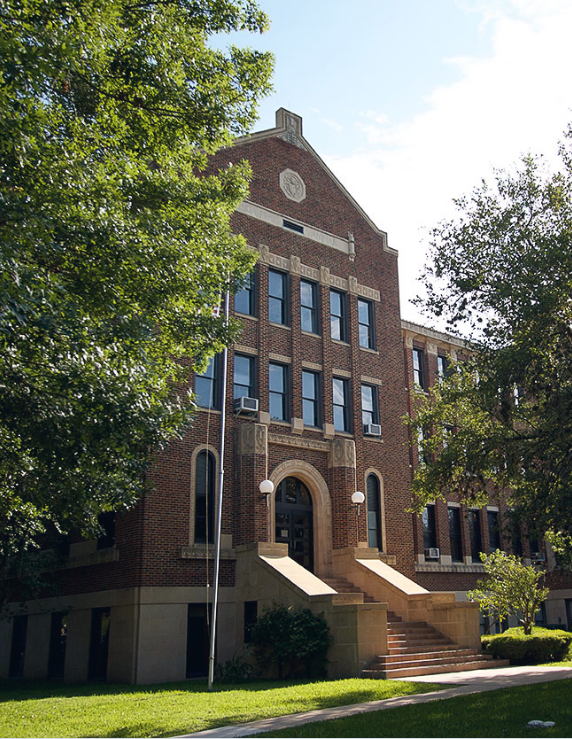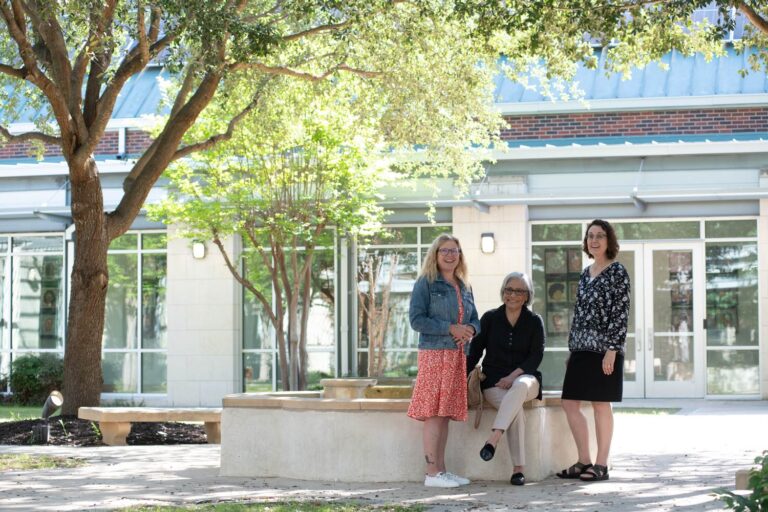“Doing Ecclesiology in the World Church” is the Third Annual Louis G. Vance Chair of Systematic Theology Lecture, delivered by Rev. Peter C. Phan at Oblate School of Theology on October 17, 2017.
World-renowned theologian Dr. Peter Phan discusses the concept of “World Christianity,” outlining the theology of the church and exploring its mission, nature, and ministry. This lecture draws insights from Pope Francis and the Federation of the Asian Bishops’ Conferences and seeks to respond to the most prominent challenges facing the church today: What is the essential task of the church? Which model of church is most appropriate? Which forms of church ministry are most urgently called for today?
Lecture Outline
INTRODUCTION
Four Terms:
1. “Ecclesiology”
2. “Doing Ecclesiology”
3. “World Christianity”
4. “Migration”
Three Parts:
1. Overview of “world Christianity and “migration”
2. Migration as constitutive element of the Church
3. A migration ecclesiology: Church as an institutional migrant
I. WORLD CHRISTIANITY AND MIGRATION AS LOCI THEOLOGICI
1. “World Christianity”: missions, ecumenical unity, and policentricity (multiplicity and diversity).
2. The “Age of Migration”: Recent statistics. Three current flows: unaccompanied minors from Central America, the expulsion of Rohingyas from Myanmar, and war refugees from the Middle East.
3. Political and church responses to migration. Pope Francis. Theological challenge.
II. THE CHURCH OF MIGRANTS AND THE MIGRANT CHURCH
1. Outside migration there is no American Catholic Church (extra migrationem nulla ecclesia Americana), Waves of Catholic immigrants make the American Catholic Church.
2. Outside migration there is no church (extra migrationem nulla ecclesia). How would you narrative the history of Christianity? What if migration is the organizing principle of one’s history of Christianity? Eight migratory flows:
(1) Migration of Christians out of Jerusalem after the destruction of the Second Temple: Church as Jewish-Christian.
(2) Migration of Christians out of Palestine to five geographical areas: the Roman province of Syria (Antioch, Damascus, and Edessa) and Mesopotamia; Greece and Asia Minor; Western Mediterranean (Italy, France, Spain, and North Africa); Egypt (Alexandria); and Asia along the Silk Road (Afghanistan, Pakistan, India, and China). The Church of Mediterranean and Syrian migrants.
(3) Transfer of the imperial capital from Rome to Constantinople (Turkey). The face of the Church as Byzantine (the “Second Rome”). After the rise of Islam and Moscow as the “Third Rome.” Migration in north Eastern Europe. The face of Church as Greek, Middle Eastern, and Slavic. (4) Migration of Germany tribes (the Vandals, the
(4) Migration of Germany tribes (the Vandals, the Goths, and the Visigoths): The face of the Church as that Germanic tribes.
(5) Migration of Portuguese and Spanish Christians to the New World and Asia. The Church as Portuguese and Spanish. The face of the Church is Portuguese, Spanish, Latin American, Asian, and African.
(6) From 1650 to World War I (1914-18): Western colonial enterprise. The face of the Church is Asian and African colonized people.
(7) World War II and massive migrations within Europe; return of colonists back to Europe.
The face of the Church is that of Christian migrants in the diaspora.
(8) Globalization (the Church of the global citizens) and the recent wars in the Middle East (the Church of migrants of all religious traditions, in particular, Muslims).
“Migrantness” is the essential “note” of the true church.
III: AN ECCLESIOLOGY OF MIGRATION
Extra migrationem nulla salus (Outside migration there is no salvation)
- An early theology of Christians as migrants and an early ecclesiology of migration: Letter to Diognetus. Six major points.
- Biblical theology of migration: stranger/alien; foreigner; sojourner.
- Patristic theology of Church as migrant. An eschatological ecclesiology of migration.
- An Eucharistic ecclesiology of migration (Daniel Groody)..
- Jesus as the Paradigmatic Migrant: A Christological ecclesiology of migration.
Peter Phan
Peter C. Phan, a native of Vietnam, emigrated as a refugee to the U.S.A. in 1975. He obtained three doctorates, the Doctor of Sacred Theology from the Universitas Pontificia Salesiana, Rome, and the Doctor of Philosophy and the Doctor of Divinity from the University of London. He was also awarded the honorary Doctor of Theology from Chicago Theological Union and the honorary Doctor of Humane Letters from the College of Our Lady of the Elms. He began his teaching career in philosophy at the age of eighteen at Don Bosco College, Hong Kong. In the United States, he has taught at the University of Dallas, Texas; at the Catholic University of America, Washington, DC, where he held the Warren-Blanding Chair of Religion and Culture; at Union Theological Seminary, N.Y.; at Elms College, Chicopee, MA; and at St. Norbert College, De Pere, WI. and at Georgetown University, Washington, DC, where he is currently holding the Ignacio Ellacuría Chair of Catholic Social Thought. He is the first non-Anglo to be elected President of the Catholic Theological Society of America. In 2010 he was given the John Courtney Murray Award, the highest honor of the Catholic Theological Society of America, in recognition for outstanding and distinguished achievement in theology.
His publications range far and wide in theology. They deal with the theology of icon in Orthodox theology (Culture and Eschatology: The Iconographical Vision of Paul Evdokimov); patristic theology (Social Thought; Grace and the Human Condition); eschatology (Eternity in Time: A Study of Rahner’s Eschatology; Death and Eternal Life); the history of mission in Asia (Mission and Catechesis: Alexandre de Rhodes and Inculturation in Seventeenth-Century Vietnam) and liberation, inculturation, and interreligious dialogue (Christianity with an Asian Face; In Our Own Tongues; Being Religious Interreligiously). In addition, he has edited some 20 volumes (e.g., Christianity and the Wider Ecumenism; Church and Theology; Journeys at the Margins; The Asian Synod; The Gift of the Church; Directory on Popular Piety and Liturgy). His many writings have been translated into Italian, German, French, Spanish, Portuguese, Polish, Chinese, Japanese, Indonesian, and Vietnamese. He is general editor of a multi-volume series entitled Theology in Global Perspective for Orbis Books and a multi-volume series entitled Ethnic American Pastoral Spirituality for Paulist Press. His writings have received many awards from learned societies.



